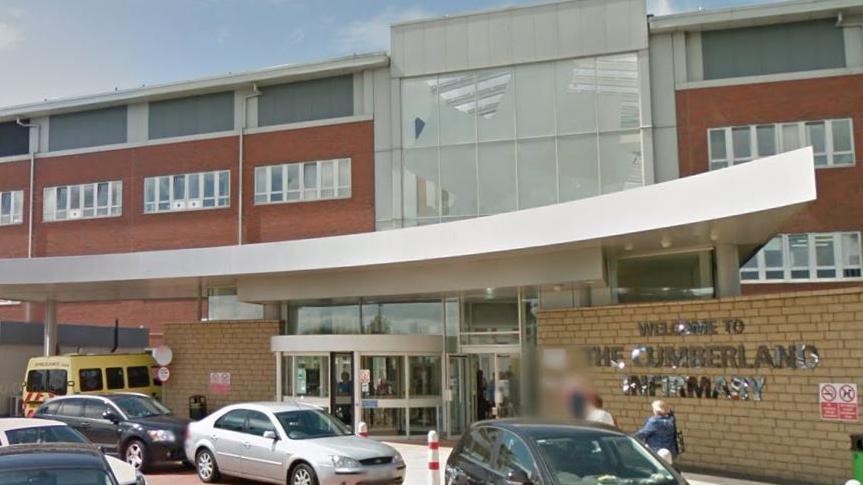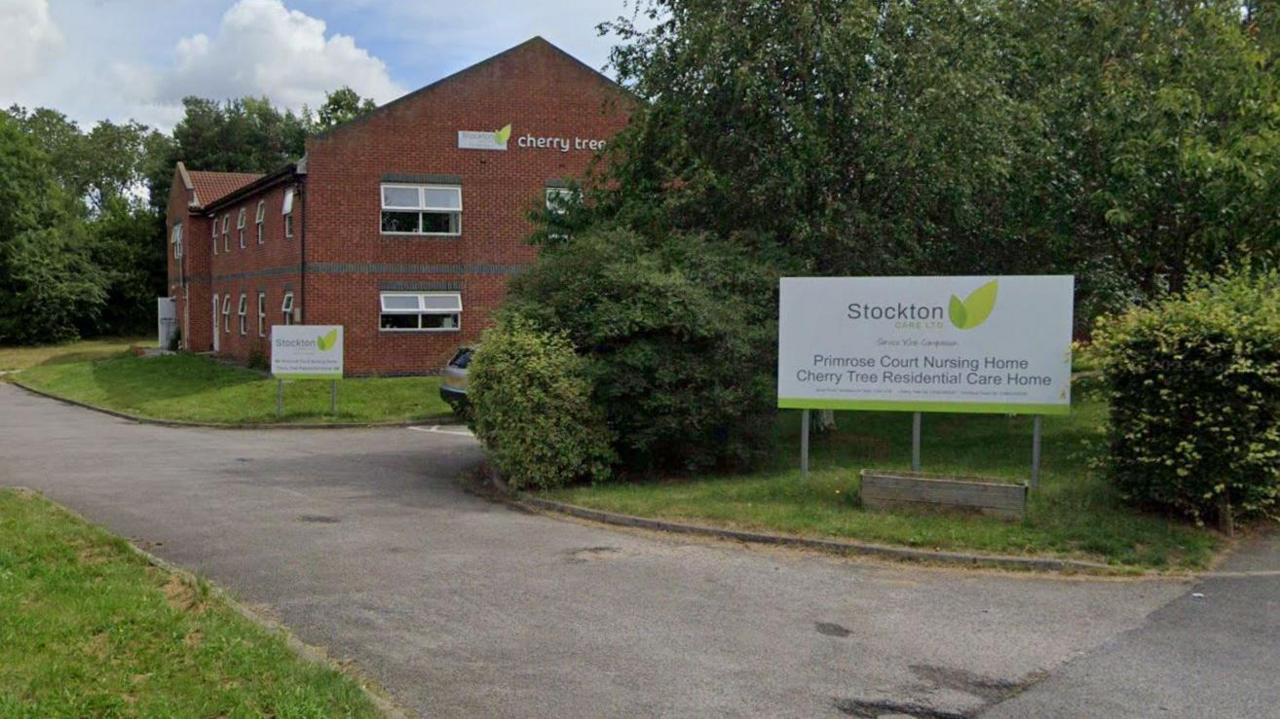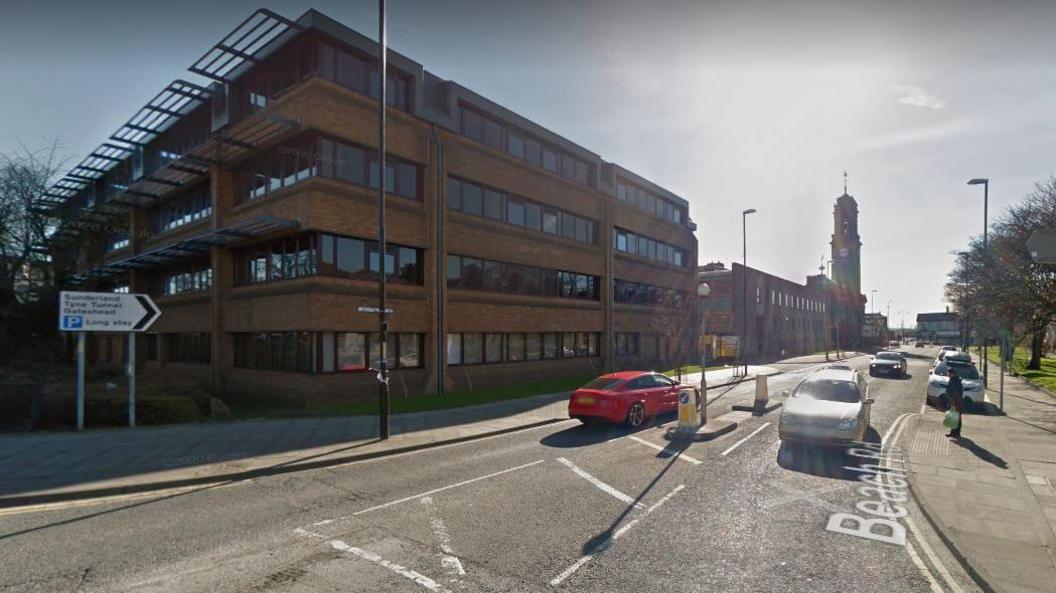Coroner's 'tick box' fears after woman's death

The coroner has written to the trust that runs the Cumberland Infirmary to raise concerns
- Published
A coroner has raised concerns that safeguarding assessments carried out by a hospital were treated as a "tick box" exercise following the death of a woman.
Karen Thomason died from consuming a "substantial" amount of alcohol hours after being discharged from Carlisle's Cumberland Infirmary in November.
Despite there being evidence that Cumbria Housing had asked to be notified of her discharge so they could put support in place, the hospital failed to do so.
North Cumbria Integrated Care trust, which runs the hospital, said while a review found the care given to Ms Thomason was appropriate, they acknowledged that there had been opportunities for sharing information "more effectively".
Cumbria's coroner Robert Cohen has written to the trust urging them to take action to prevent future deaths, a process known as a Regulation 28 Report.
The report said Ms Thomason, who lived in Carlisle, was alcohol dependant and had been admitted to the Cumberland Infirmary several times because of her drinking.
On 31 October the 52-year-old was taken to hospital after collapsing at home.
Cumbria Housing were not notified of her discharge that night and she was found dead at her house the following day.
'Obvious vulnerability'
Mr Cohen said the inquest found the clinician filling in a safeguarding form, had accidentally ticked "no" to the question "are there any safeguarding concerns".
He said: "I am concerned that the form is regarded as a tick box exercise rather than a vital safeguarding tool.
"There is evidence that Cumbria Housing staff had asked to be notified of the discharge of a vulnerable patient so that they could provide support to her but that they received no communications on several occasions.
"I am concerned that this may mean that other patients are discharged without appropriate support being alerted to their needs."
Mr Cohen's report said evidence from the inquest placed emphasis on the fact that Ms Thomason had capacity to make decisions and that she felt safe.
He added: "It is certainly correct that this meant that there could be no question of her being held in hospital. It is also correct that her view of her situation was of relevance.
"However, it does not mean that obvious vulnerability or safeguarding concerns could not be addressed. Regardless of what Ms Thomason said, her vulnerability was obvious."
'Appropriate care'
The trust now has 56 days to respond to the coroner's letter to detail what actions they will be taking to address the issues.
A spokesman for North Cumbria Integrated Care said: "We have undertaken a review into the clinical care and treatment provided to Ms Thomason which concluded that this was appropriate but that there were opportunities for sharing information more effectively.
"Actions will be taken to improve and strengthen our safeguarding processes as a result."
If you have been affected by any of the issues in this article, you can contact BBC Action Line for support.
Follow BBC Cumbria on X (formerly Twitter), external, Facebook, external and Instagram, external. Send your story ideas to northeastandcumbria@bbc.co.uk.
- Published21 March 2024

- Published1 May 2024
